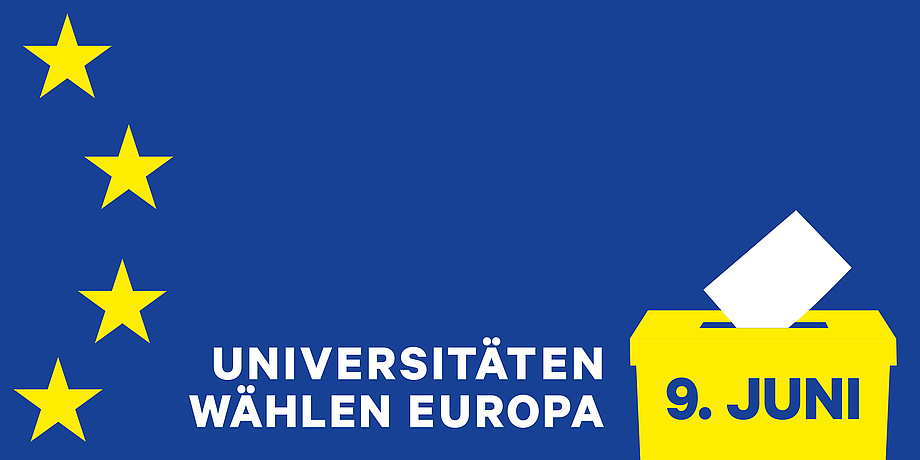A Europe-wide campaign – in addition to Universities Austria uniko, rectors’ conferences from ten European countries are also participating – is calling on the candidates for the European Parliament to commit to Europe and to stand up for the strengthening of scholarship/ science.
Voices from TU Graz
The Rectorate of TU Graz stands united behind the appeal:
"The best way to find solutions to the major social challenges of the future is to work together at a European level." Horst Bischof, Rector of TU Graz
„Since research and innovation work best across national borders and Europe must remain a strong centre of research.“ Andrea Höglinger, Vice Rector for Research
„Studying internationally, establishing European networks and being mobile without borders – that's Europe.“ Stefan Vorbach, Vice Rector for Academic Affairs
„Climate protection and sustainability are challenging society. Europe's researchers are coming up with forward-looking solutions.“ Michael Monsberger, Vice Rector for Infrastructure and Sustainability
„Staff mobility connects European institutions and creates new knowledge.“ Andrea Hoffmann, Vice Rector for Human Resources and Finance
What does the EU give to universities and what do universities expect from the EU?
The European network Universities for Enlightenment (U4E) has produced a position paper that emphasises the added value of the European Union for universities and higher education institutions. It also includes the demands and expectations of the higher education sector towards future MEPs and the new EU Commission. The following points are set out in the position paper:
What do we gain from the EU?
Studying throughout the European Union: The EU guarantees its citizens the right to study in any other EU country under the same conditions that apply to nationals of that Member State. Academic mobility is promoted and supported by the ERASMUS+ programme.
Supporting collaborative research and enhancing global academic cooperation: The EU facilitates cross-border cooperation between European researchers and invests in large-scale framework programmes for research and innovation. The EU promotes the global networking of its universities and research institutions. At the same time, it is developing a framework that ensures research security and protects European interests in a global context.
Promoting research on socially relevant topics: The EU supports research to combat climate change, covering a wide range of topics from new technologies to social cohesion issues. This supports the European Green Deal, which aims to achieve a fair and inclusive transition to a climate-neutral Europe.
Enabling the digital transformation: The EU addresses the digital transformation and the advance of artificial intelligence with its own set of regulations. The EU has an AI strategy and is currently developing ethical guidelines and regulations to mitigate risks and is funding corresponding research and education programmes.
Guaranteed academic freedom: The EU is committed to academic freedom. Academic freedom is inextricably linked to democracy, the rule of law and human rights. These principles are guaranteed in the EU Charter of Fundamental Rights.
What do we expect from the EU?
Move in the right direction: The EU must ensure that international cooperation in education and research remains guaranteed and is further expanded. Europe must remain an attractive location for research and innovation that is open to international students, researchers and lecturers, while at the same time safeguarding European standards and values.
Promote research cooperation across regions: To achieve synergy effects, investment in high-quality science must be distributed across all regions, including the development of an appropriate digital infrastructure.
Check new legislation for university compatibility: The EU should carry out a preliminary assessment of legislation that could have an impact on universities and their activities (e. g. in the areas of trade, migration digital transformation or the rule of law) with the involvement of universities and ensure that new legislation does not hinder education, research and innovation.
Provide ambitious funding: EU research programmes must be ambitiously funded. National and European research spending should be coordinated to create added value.

